Text Patrícia Pais Leite
Wines that have in the bottle the terms “Casa”, “Herdade”, “Paço”, “Palácio”, “Quinta” and “Solar”, commonly called «Quinta Wines» (Estate Wines), are subject to a special legal regime, which had the last change in August 2012.
Legend
DO: Designation of Origin
IG: Geographical Indication
Concept
The current term «Quinta Wines» (Estate Wines) refers to wines containing in the bottle terms that indicate a wine estate and that, therefore, comply with certain legal requirements.
The use of the name of an estate creates an image of prestige among consumers and generates added value because of the notion of authenticity in relation to the land where the wine is produced and the producer.
That is why it was created a particular legal regime that subjects these wines to control measures and supervision in order to prevent misuse of the mentions and to protect consumers against the risk of error or confusion.
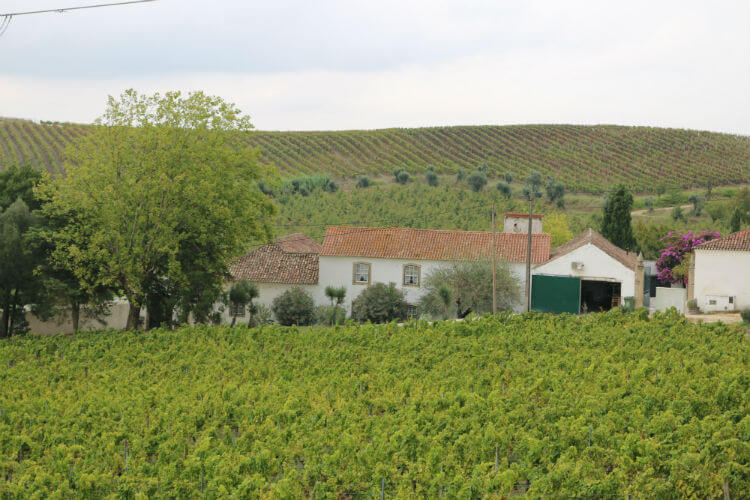
Wine Estate © Blend All About Wine, Lda.
The terms that indicate a wine estate are defined by Community law and they are the following in Portugal: “Casa”, “Herdade”, “Paço”, “Palácio”, “Quinta” and “Solar”.
These terms may only be used in wines with DO or GI and also for quality sparkling wines.
[To know more about the wines with DO and GI, see our previous article]
In addition, the wines must be made exclusively from grapes harvested in the wine estate and the holder of that estate should unequivocally take effective direction and sole responsibility for winemaking, for the wine produced and for the respective bottling .
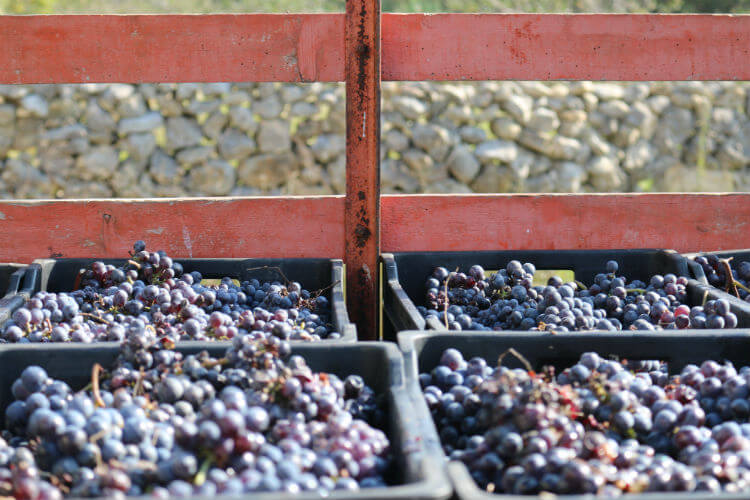
Grape transport © Blend All About Wine, Lda.
Legal context
Until August 2012 it was the Decree No. 1084/2003 that set out specific rules for the use of the terms “Quinta” and “Herdade”, considered by law as the most frequently used to indicate a wine estate. The regime was similar to the current (displayed below), except with regard to the need to register the name of the wine estate in question as a trademark in the National Institute of Industrial Property, which was abolished in the new regime.
The other terms foreseen to designate a vineyard – “Casa”, “Paço”, “Palácio” and “Solar” – were subject to stricter usage rules with regard to the winemaking place, because they were considered terms normally associated to the asset values in question. In the earlier Community Law and also in Portaria No. 924/2004, these four terms could be used provided that wine were to come exclusively from grapes harvested in the wine estate vineyards and winemaking had been made there. At the time, this regime was more restrictive as to the place of winemaking than the regime of the terms “Quinta” and “Herdade”.
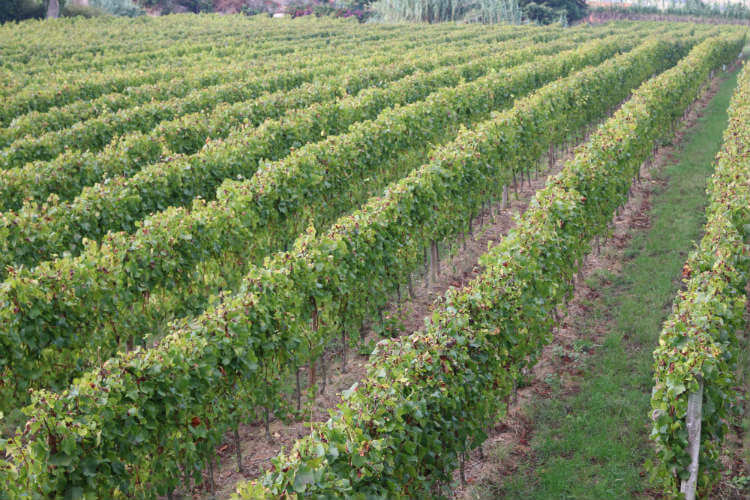
Vineyards © Blend All About Wine, Lda.
With the existing Community law in force since August 1, 2009, it was appropriate to establish in a single national diploma, Portaria No. 239/2012, the terms used to designate on the label the name of the wine estate and in order to increase the wine prestige to the consumer.
National regime
Who can use the words “Casa”, “Herdade”, “Paço”, “Palácio”, “Quinta” and “Solar”, i.e. who can produce «Quinta Wines »?
Any natural or legal person provided that is the owner of the wine estate or has a contractual relationship of use of the wine estate vineyards (e.g., renting, lending, etc.). It is the economic operator that holds the wine estate, who should be registered in a respective certifying body under a category of wine production and bottling activity (Vitivinicultor-Engarrafador – Wine Estate Producer-Bottler and Engarrafador – Bottler).
[To know more about this activity categories, see our previous article]
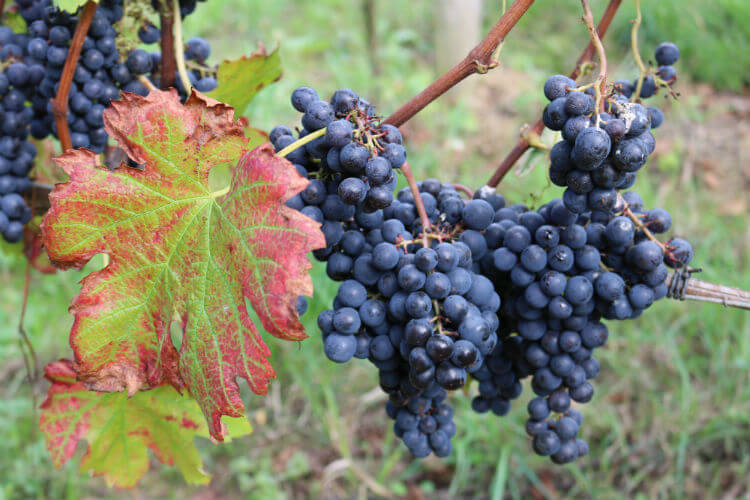
Grapes on the vine © Blend All About Wine, Lda.
The law requires that the name of the wine estate is in the description of the land register. The vineyards in question and winemaking facilities should also be registered in the respective certifying body and the grapes and wine should be reported in the harvest and production statement of economic operator who is the wine estate holder.
In addition, «Quinta Wines» are subject to a specific current account, in records of the wine estate holder and in the certifying body. Finally, the economic operators who have «Quinta Wines» in July 31 of each year should include them in their stock declaration.
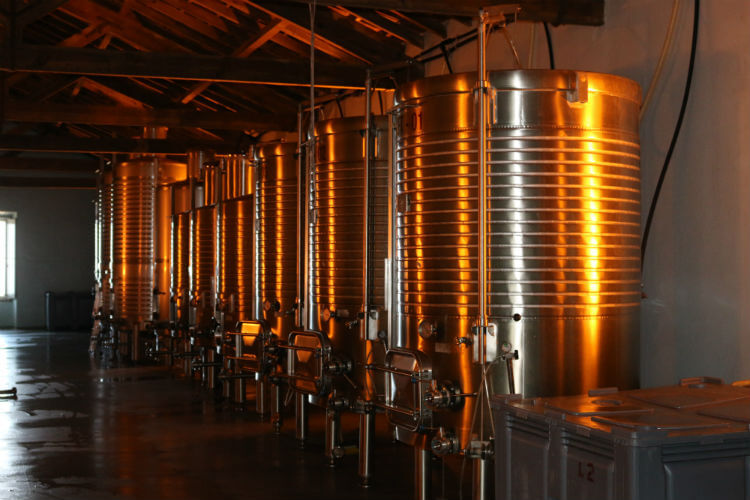
Vinification facilities © Blend All About Wine, Lda.
Concerning the vinification and bottling, these operations can be performed in third parties facilities, provided that the wine estate holder unequivocally assume the effective direction and sole responsibility for winemaking, for the wine produced and for the respective bottling.
The economic operator holder of the wine estate who makes his «Quinta Wines» in third party facilities must also communicate to the competent certifying body, at least 48 hours in advance, the date and the place for bottling. In labeling this economic operator must identify himself through the expression «engarrafado para …» (bottled for … ) or, if he also identifies the provider of bottling services, through the expression «engarrafado para … por …» (bottled for … by …).




Leave a Reply